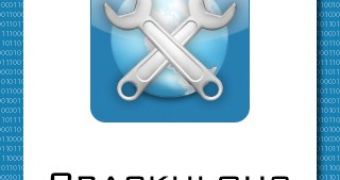We're not going to say “this, you won't believe” because we're saving it for Steve Jobs news. However, you'll most likely find it interesting (to say the least) that an app used to crack legitimate App Store titles has been pirated. Moreover, the guy pirating Crackulous charges for the app, whereas the original Crackulous is open source.
A Gizmodo report reveals that Crackulous, an iPhone application that makes it easier to pirate iPhone apps, was recently released to the public. Users of a jailbroken handset can use it to strip the apps' copy protection. Such apps can then be shared via BitTorrent sites for others to download and use for free / illegally. So far, so good.
However, an update to the story says that a person claiming to be the author of Crackulous emailed the author, explaining that he had linked to a pirated version of Crackulous. Even though the site eventually found that the guy wasn't the real developer, or a scammer (just someone looking to screw someone else) the irony is real, and it's this: an iPhone application that pirates apps got its own. So, here's some of that conversation:
“Adam, you are linking to a pirated version of the app. Please link to REMOVED (the official Crackulous site) instead of supporting the pirates in the crackulous article. Thanks,” the alleged developer peacefully wrote.
The author, of course, couldn't believe what he was reading, hence his reply, “Are you serious? This isn't a joke? You're seriously trying to stop an app designed to pirate apps from being pirated?”
The fake Crackulous creator answered back, saying, “No but I need people to support my work... I deserve appreciation.” As noted above, Crackulous is a free, open source application. Those making the pirated version are charging $10 for it. Needless to point out, not even those making the original Crackulous deserve too much appreciation, let alone its hackers.
PC World picked up on the story, pointing out that such events are due to the lack of iPhone app trial versions on the App Store. While this was true until recently, developers have already begun releasing “Lite,” “Ad-supported,” “Free” versions of their applications. Yes, now there are trial versions to download in order to make an idea about the app. The only trouble is that, out of the almost 20,000 apps available in the App Store, maybe 5 percent have their free counterparts, and even that's a stretch.
So, how does the news strike you? Leave your comments below.

 14 DAY TRIAL //
14 DAY TRIAL //